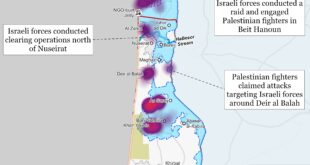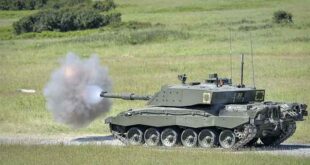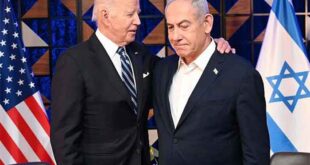Turkey cemented its involvement in the Libyan conflict on Saturday when Defence Minister Hulusi Akar visited the country.
Four days earlier, the Turkish Parliament voted to extend by 18 months a one-year presence in the country, which came into effect in January after an agreement with the Government of National Accord in Tripoli.
The GNA and rival House of Representatives in the east reached a UN-brokered ceasefire in October, which called for the departure of all foreign forces and mercenaries within three months.
Turkish media called the defence minister’s visit a “surprise inspection” of Turkish forces.
Mr Akar’s apparently unscheduled visit could be seen as Ankara challenging the government in the east and its powerful backer, Field Marshal Khalifa Haftar.
Field Marshal Haftar vowed to repel the Turkish “colonisers” in a speech on Libya’s Independence Day, December 24.
On Sunday, Mr Akar said Field Marshal Haftar’s forces would become targets if they attacked Turkish forces in the region.
‘Drive out the colonisers’
By intervening in Libya’s conflict, Turkey has expanded its footprint across the Arab world.
It has provided troops, weapons, training and Syrian mercenaries to the GNA in a move widely condemned by the international community.
It occupied much of northern Syria, which has a large ethnically Kurdish population, and Turkish troops have continued to stage raids against Kurdish separatist fighters in northern Iraq.
Since 2016, Turkey has established several military bases in the Kurdish region of Iraq, causing tension with the Iraqi government in Baghdad.
Ankara continues to breach Libya’s borders to further its interests in the country, which has vast oil and gas resources beneath the Eastern Mediterranean and sits on Africa’s largest proven crude oil reserves.
Last year, Turkish President Recep Tayyip Erdogan signed a deal with the GNA that demarcated each country’s maritime boundaries, with the aim of drilling in the Eastern Mediterranean and within Greek territory.
The move sparked a row that involved regional and international powers.
In return for access to these resources, Mr Erdogan wanted to tip the conflict in favour of the GNA and its allied militias.
Backed by a regional alliance and local militias in eastern Libya, Field Marshal Haftar is regarded as a bastion against an Ottoman-style strongman.
Critics say Mr Erdogan is acting as a populist leader with a desire for aggressive adventurism in foreign countries.
These perceptions are not helped by the names of ships in the Turkish flotilla sent to explore for oil and gas in disputed parts of the Mediterranean.
Turkey’s seismic exploration ship, the Oruc Reis, is named after the Ottoman admiral popularly known as Barbarossa.
The naval escort for the Oruc Reis is the Kemal Reis, named after a 15th century Ottoman admiral.
In his speech on Thursday to mark the 69th anniversary of Libyan independence, Field Marshal Haftar said there would be “no peace in the presence of a coloniser on our land” and called on his forces to get ready.
“We will therefore take up arms again to fashion our peace with our own hands … and, since Turkey rejects peace and opts for war, prepare to drive out the occupier by faith, will and weapons,” he said.
 Eurasia Press & News
Eurasia Press & News



